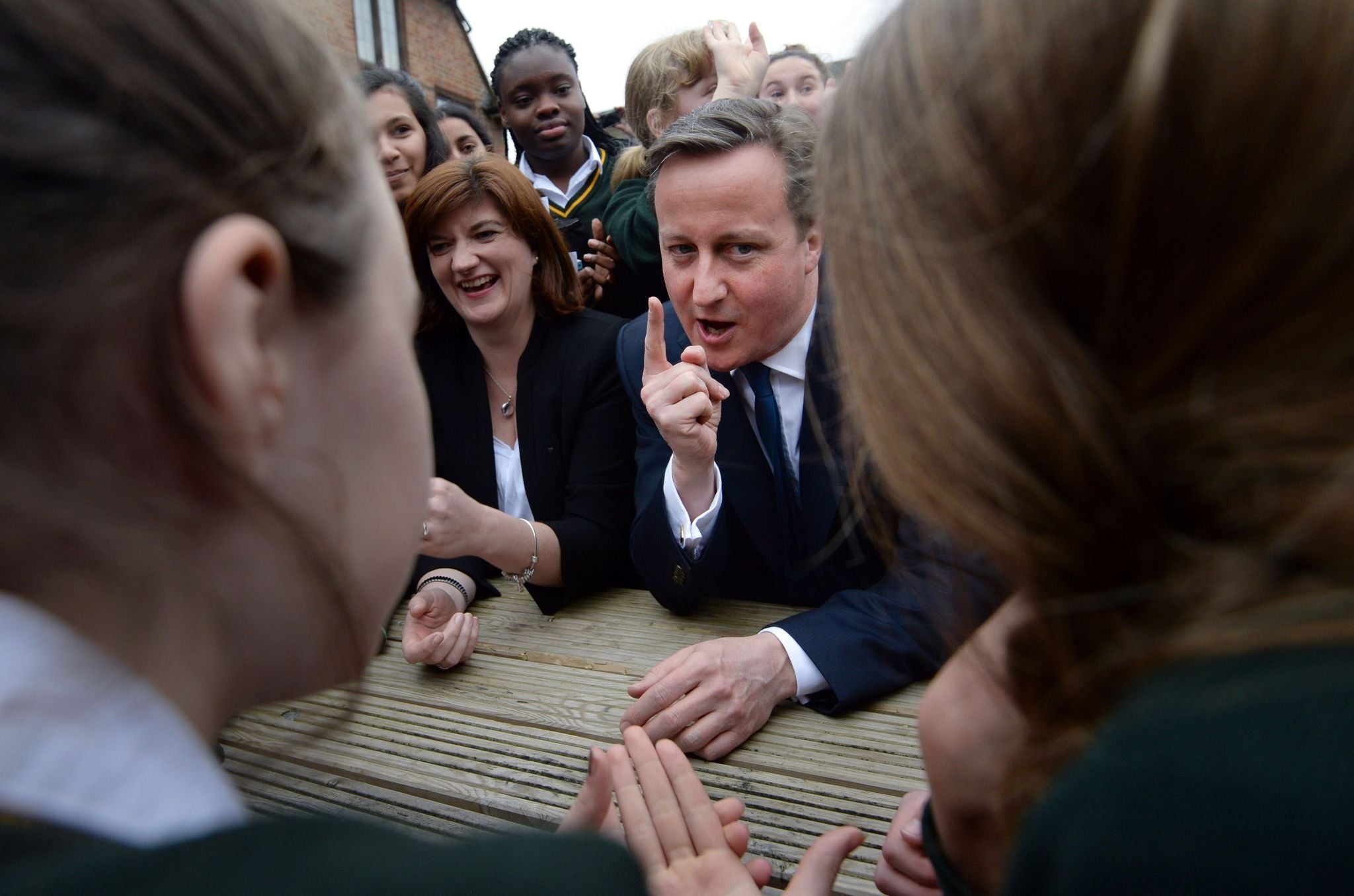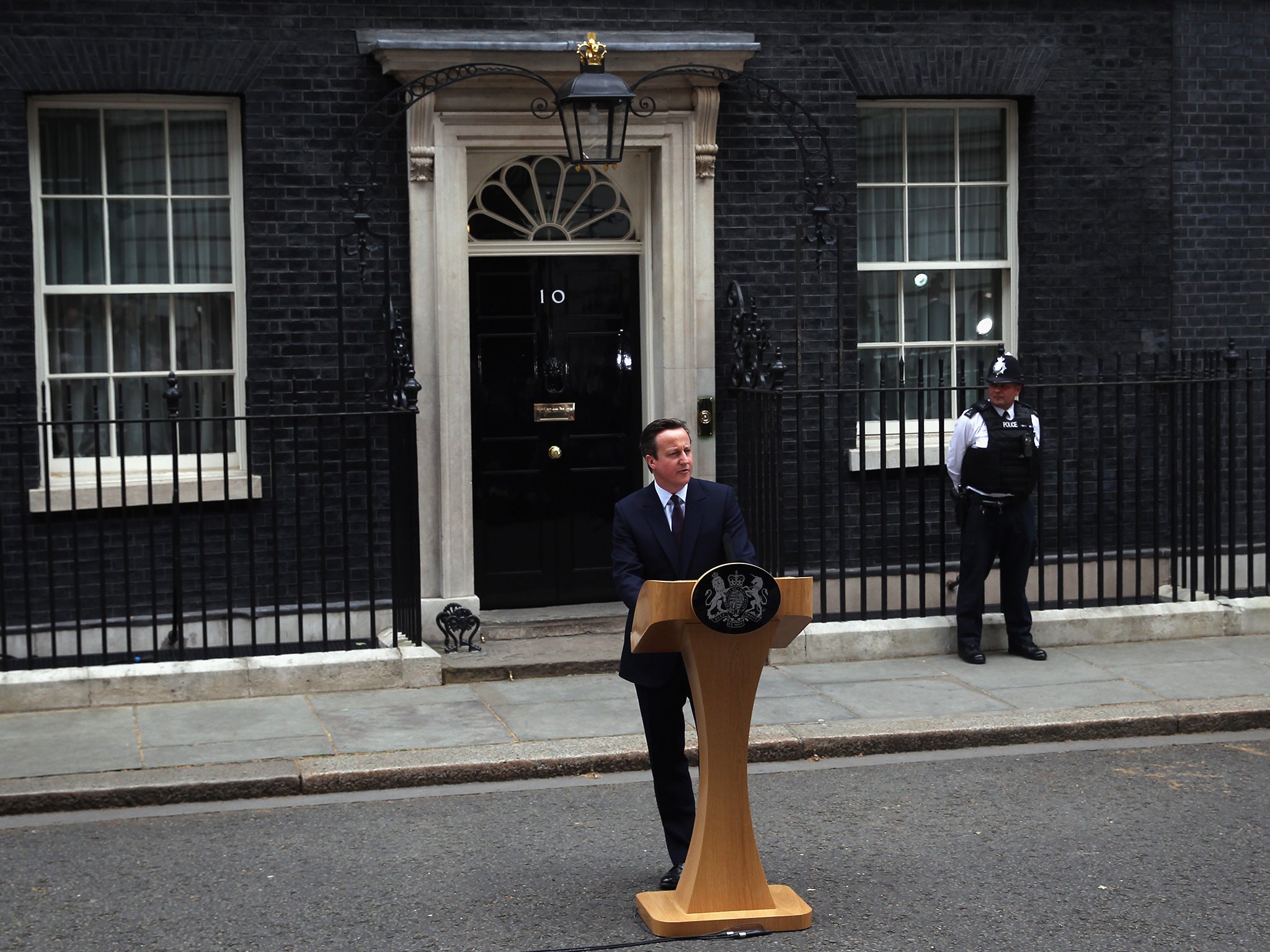If the Tories carry on like this, they will destroy our United Kingdom
David Cameron wants to reclaim the One Nation mantle. He should start by changing the electoral system

How screwed up does an electoral system have to be before we change it? Another election, another result that bears too little resemblance to the votes cast. Another election that exacerbates regional divides, that rips the very fabric of the country apart. Another election where around a third of people don’t even bother to vote, partly because they know that that vote is a waste.
David Cameron won a wafer-thin majority this week. The Conservative Party in the last parliament was at its most rebellious since the Second World War. It is unlikely that all Tory backbenchers will abandon their seditious habits. Yet this weekend the talk is of Cameron’s great strength. History suggests that his position is not strong. Attlee, Wilson, Callaghan and Major all tried to govern with small majorities and all of them had a miserable time. It seems likely that it will be a turbulent few years for Cameron.
Yet strong, stable, decisive, single-party government, we are told again and again, is the great advantage of our first-past-the-post electoral system. It may not be fair or proportional, but it does deliver. In fact, historically it has only done so when voters restrict their choice to two parties. In 1868, 99.9 per cent of people voted Liberal or Conservative. Around 96 per cent of people voted for the Conservatives or Labour in 1955. Both times, there was a clear winner.

But when we start voting for a multitude of parties, then our system buckles. In 1874, support for the Irish Nationalists surged. Over the next 20 years, there were five elections and, in effect, three hung parliaments. From 1910 to 1930, first-past-the-post consistently failed to deliver majorities. There were seven elections in 20 years, and four of them produced hung parliaments. In fact, for more than a quarter of the past 100 years we have had hung parliaments, minority governments or governments with a slim majority of less than 25, which often ended up losing that majority through attrition.
Labour got one seat in Scotland on a quarter of the vote. The Conservatives got the same number of seats as Labour – something deemed unthinkable before the independence referendum – on 15 per cent of the vote. And the Lib Dems won just one seat on 7.5 per cent of the vote. So we have a system that is driving divisions in Scotland and the UK – with one side or another able to secure nearly all seats on only half of the public’s support.
But the tensions in Scotland are also driven by the wider UK result. Those on the left in Scotland often argue that they have had to put up with Conservative governments which they didn’t vote for. Yet the public rarely vote for a majority government. The Conservatives won Thursday’s Commons majority on 37 per cent of the vote, while Labour got 36 per cent of seats on about 30 per cent of the vote. Something is fundamentally out of kilter, and it’s no good for our constitutional future.
There are regional divides being exacerbated by the voting system, too. The North of England, Wales and London remain in the hands of Labour, while the Conservatives control much of the rest of England. The map makes it look like the support is relatively homogenous – Wales as all Labour, the South-west as all Tory. But it’s not like that – there are millions of unrepresented voters from all parties within England and Wales.
More than 16 per cent of voters, nearly five million people, voted Green or Ukip in the election. Between them, these parties won a derisory two MPs. That is millions of people who decided to explore new parties and make positive choices to shop around. We should be encouraging this, however much we may personally disagree with the policies of these relative newbies.
Instead, our system punishes people who choose parties outside the big ones, their vote will be wasted and they cannot have a say in the only real choice in their area, mostly between the Conservatives and Labour. That is, if they’re lucky enough to live in a contested seat. In my constituency, a vote for anyone except the Conservative Party is a waste of energy. The last time it changed hands was before the Second World War. We’ve bought our family home there, our children are at school there, I’ve planted trees, it is where I’m staying, and I’m angry that, never again, will I be able to influence a general election outcome.
As the Electoral Reform Society has demonstrated with its figures from the council elections of 2011, the image of an all-red north and an all-blue south is distorting and bogus. Britain is not like that: the north-south divide is in large part inflated and illusory – to a great extent, down to our broken voting system. We have an electoral system that exaggerates differences, rather than helping to resolve them. That makes us look more fractured as a society, rather than emphasising what we have in common. And, as a result, about a third of UK citizens of voting age have turned their backs on it.
Cameron says that he wants to govern one nation. I hope he means it. If the Conservatives seek to continue ruling Britain from their southern bastion, it will surely destroy this country, Scotland is just the beginning.
I hope he calls a constitutional convention and we find a way, as we have so often over the past 300 years, to bring about reform. We need changes that will preserve what is best about Britain and make our political system, once again, the envy of the world.
Dan Snow is a historian and broadcaster
Join our commenting forum
Join thought-provoking conversations, follow other Independent readers and see their replies
Comments
Bookmark popover
Removed from bookmarks